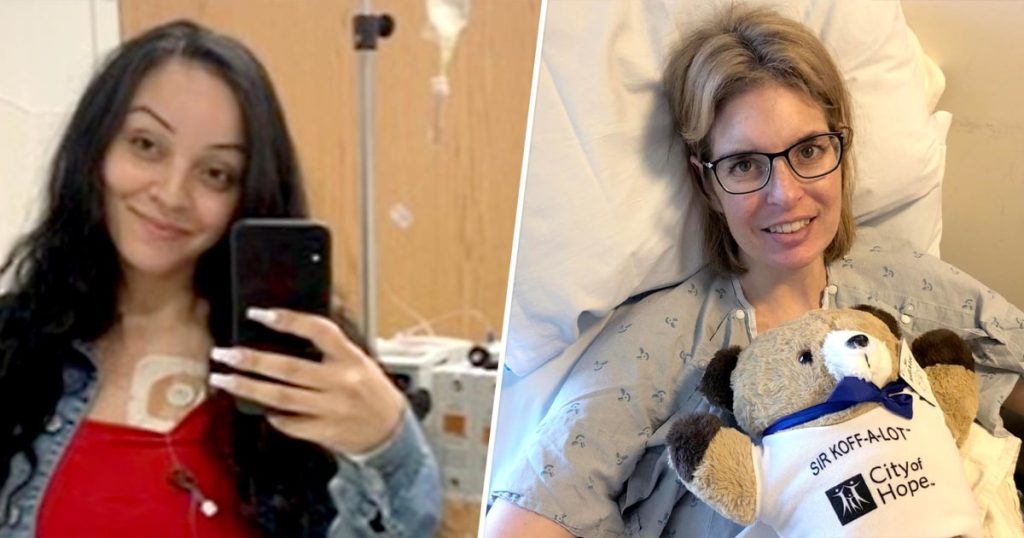Yasmine Garjales’ fifth pregnancy was challenging as she experienced severe nausea and vomiting, as well as symptoms such as blood in her stool. Despite repeatedly informing her doctors, they initially dismissed her concerns as hemorrhoids due to her age. However, after giving birth, Garjales was diagnosed with stage 3 colon cancer. This highlights the difficulty in diagnosing colon cancer in pregnant women, as symptoms like hemorrhoids can mimic those of the disease. Doctors are now urged to consider the possibility of colorectal cancer when faced with changes in bowel habits in pregnant patients.
Garjales’ family history of colon cancer further heightened her concerns about her symptoms during pregnancy. While doctors initially ignored her worries, a colonoscopy after childbirth revealed a cancerous tumor. Following surgery to remove the tumor and lymph nodes, as well as chemotherapy, she is currently cancer-free. Alyssa Kelly, on the other hand, was diagnosed with stage 4 colon cancer while pregnant with her son. Doctors had to carefully manage her treatment and ultimately performed surgery to remove the tumor. Kelly continues to undergo chemotherapy and surgeries to manage her condition.
Experts note a rise in colon cancer cases among younger age groups, including pregnant women. Changes in diet and lifestyle do not fully explain this trend, as young patients typically exhibit tumors in a specific part of the colon. This increase in colon cancer cases among the younger population has also led to more pregnant women being diagnosed with the disease. Symptoms of colon cancer, such as bowel habit changes, rectal bleeding, fatigue, and anemia, should not be ignored during pregnancy and need to be discussed with healthcare providers.
Pregnant individuals should not hesitate to report any changes in bowel habits or other symptoms to their doctors. Gastrointestinal symptoms during pregnancy can often be attributed to common issues like hemorrhoids, which can complicate the diagnosis of colon cancer. By raising awareness and discussing their symptoms openly with healthcare providers, pregnant women can advocate for their health and receive timely and appropriate care. It is essential for doctors to consider the possibility of colon cancer in pregnant patients presenting with unusual symptoms.
For individuals like Kelly and Garjales living with incurable colon cancer, navigating treatment, surgeries, and chemotherapy is a daily challenge. Embracing life post-cancer diagnosis comes with its own set of mental health struggles, but both women are focused on living their lives fully with their families. By sharing their stories and working with organizations like the Colorectal Cancer Alliance, they aim to raise awareness about colon cancer and empower others to advocate for their health. Surviving cancer has given them a new perspective on life and a deeper appreciation for each day.
Despite the physical and emotional toll of their cancer journeys, Kelly and Garjales find strength in their families and in connecting with others who have faced similar challenges. By continuing to share their experiences and educate others about colon cancer, they hope to make a difference in the lives of those who may be struggling with similar symptoms or diagnoses. Their resilience and determination to raise awareness serve as an inspiration to many, highlighting the importance of early detection and proactive healthcare in managing and treating colon cancer.


